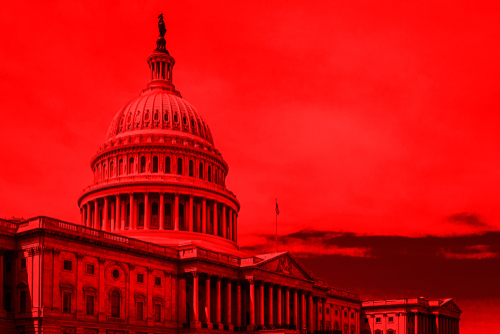A House Subcommittee investigation has unveiled a troubling disciplinary history for Capitol Police officer Michael Byrd, the man who shot Ashli Babbitt during the January 6 riots.The House Subcommittee reveals Michael Byrd’s extensive disciplinary record. The findings raise questions about Capitol Police oversight and accountability.
Capitol Police Officer’s Troubled Past Uncovered
In a startling revelation, a House Subcommittee investigation has brought to light the extensive disciplinary record of Capitol Police officer Michael Byrd. Byrd, who gained notoriety for his involvement in the fatal shooting of Ashli Babbitt during the January 6 Capitol riots, is now at the center of a growing controversy regarding police accountability and oversight within the Capitol Police force.
The findings have reignited debates about transparency in law enforcement operations and the effectiveness of internal disciplinary measures. This development comes at a time when public scrutiny of police actions is at an all-time high, particularly in politically charged environments.
Whatever else we may know about Michael Byrd, we know absolutely that his use of force that resulted in the fatal shooting of Ashli Babbitt was not a good shoot in any police jurisdiction in the country. Yet the Capital Police covered it up. Byrd should have been charged with… https://t.co/ywWC0EW3i2
— Leo Knight (@primetimecrime) November 22, 2024
Implications for Capitol Police Oversight
The revelation of Byrd’s disciplinary history raises serious questions about the Capitol Police’s internal review processes and their ability to address recurring issues within their ranks. Critics argue that the failure to adequately address or disclose such a prolific disciplinary record undermines public trust in the institution tasked with protecting the nation’s legislative branch.
This statement by Petersen encapsulates the core of the controversy, highlighting the potential systemic issues within the Capitol Police force. The disclosure of Byrd’s record has prompted calls for a more comprehensive review of the department’s hiring, training, and disciplinary procedures.
Report: Officer Michael Byrd Who Killed Ashli Babbitt Had a Long History of Disciplinary and Training Problems, Democrats Rewarded Him With a Promotion and $36,000 Bonus
Byrd should be charged and tried.
The J6 cover-up is much bigger than Babbitt's cold blooded murder.… pic.twitter.com/mv2yAm2Vsf
— 🇺🇸 Pamela Geller 🇺🇸 🇮🇱 (@PamelaGeller) November 25, 2024
Political Ramifications and Public Response
The revelations about Officer Byrd’s past have predictably divided public opinion along political lines. Supporters of stricter police accountability measures view this as evidence of the need for more rigorous oversight and transparency in law enforcement agencies. Conversely, others caution against rushing to judgment, emphasizing the need for a thorough and impartial investigation into the full context of Byrd’s record and the January 6 incident.
The controversy has also reignited discussions about the events of January 6 and the subsequent investigations. Some are calling for a re-examination of the shooting incident in light of these new revelations about Byrd’s professional history.
Looking Ahead: Potential Reforms and Accountability Measures
As the story continues to unfold, there are growing calls for concrete actions to address the issues raised by this investigation. Proposals range from enhanced transparency in disciplinary records to more stringent oversight of law enforcement agencies, particularly those operating in politically sensitive environments like the U.S. Capitol.

